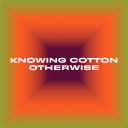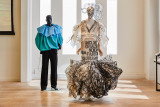Stay in the know on all smart updates of your favorite topics.
Toekomstverkenning publieke platformen

Wat is de impact van (platform)technologie op de overheid van de toekomst en haar rol in de (door o.a. technologie) veranderende samenleving? Wil jij de toekomst tastbaar en beeldend maken en meedoen met een groeiende beweging van jonge (t/m 35 jaar) visionairen, denkers en doeners?
Doe dan mee aan de toekomstverkenning publieke platformen georganiseerd door FUTUR en Provincie Zuid-Holland en ondersteund door Scape Agency.
Vanuit verschillende thematische invalshoeken gaan we hiermee aan de slag in groepen van ongeveer 10 jonge professionals vanuit verschillende organisaties (Publiek, privaat en kennis). Een beschrijving van de eerste thema’s vind je hieronder:
Thema's
- Circulair 2050 - De ambitie om in 2050 niet alleen klimaatneutraal, maar ook nog eens onze economie 100% circulair in te richten, vergt een omslag in denken en doen. Hoe buigen we lineaire ketens rond? Waar beginnen we? En cruciaal: welke rol speelt het publieke platform in deze transitie?
- Zicht op maatschappelijke vraagstukken met data – Data is onmisbaar voor het oplossen van maatschappelijke vraagstukken. Hoe zetten we data verantwoord in voor het benutten van deze kansen?
-Digitale Waterschappen – Bestuurt AI in 2050 het waterbeheer, of wordt water juist lokaal beheert?
-Ambtenaar van de toekomst – Als steeds meer taken worden overgenomen door (platform)technologie, wat is dan de rol van de ambtenaar van de toekomst en welke vaardigheden worden gevraagd?
- Participatie – hoe kan de overheid betrokkenheid van inwoners, bedrijven en maatschappelijke organisaties vormgeven bij beleid en besluitvorming?
- Uitvoering van de toekomst – De meeste publieke dienstverleners leveren een stand van de uitvoering aan. Hoe moet de uitvoering en publieke dienstverlening van de toekomst worden vormgegeven?
- Online leefwereld van jongeren – Welke publieke waarden moeten vooropstaan op social media, hoe ziet een dergelijk platform eruit en welke digitale vaardigheden van jongeren zijn cruciaal?
- Tomorrows Governance – hoe verandert de rol, organisatie en wijze van samenwerken van de overheid?
- Mobiliteit en Brede Welvaart - Wat is de impact van (platform)technologie op de bijdrage van mobiliteit aan de brede welvaart van mensen door de bereikbaarheid van banen, voorzieningen en sociale contacten in de stad, en de regio?
- Sociaal Domein – Hoe kan platformtechnologie bijdragen aan de complexe problemen in het sociaal domein? Hoe ga je toe naar een overheid die er voor de inwoner is, in plaats van de inwoner van het kastje naar de muur stuurt.
- Ethiek
Zijn een van die thema's iets voor jou? Meld je dan aan via: https://kennislab.typeform.com/to/MRNbvgIl
Wat betekent meedoen?
- Je sluit je aan bij een themagroep. En doet mee in de voorbereiding, dus het verzamelen van voorbeeldcases uit eigen werk, rapporten, studies, literatuur, films enz.
- Je doet op 13 februari mee met de visiedag (09:00 - 13:00), en bij voorkeur ook de aansluitende verbeeldingsdialoog in het Provinciehuis van de Provincie Zuid-Holland in den haag. Op deze dag werken de themagroepen met ondersteuning van ontwerpers en kunstenaars hun toekomstbeeld uit.
Je bent in maart beschikbaar voor 1 digitale of fysieke sessie voor de verdere uitwerking van het toekomstbeeld.
- Je bent op 4 april aanwezig (vermoedelijk enkel de middag) bij het slotevent ‘publieke platformen’ georganiseerd door de provincie Zuid-Holland in het provinciehuis. Op 4 april ‘exposeren’ de groepen hun toekomstbeeld aan een breder publiek, en wordt er op verschillende manier een dialoog georganiseerd tussen bezoekers, experts en bestuurders.
- Je vergroot je netwerk, je doet inspiratie op voor de vraagstukken waar jij dagelijks mee bezig bent en je hebt vooral plezier.
Exhibition: Knowing Cotton Otherwise - Bodies of Work

Last year we introduced Knowing Cotton Otherwise, a multidisciplinary exhibition, covering various aspects of this versatile fibre — from its burdened history to sustainable initiatives and innovative implementations worldwide. Through this new chapter, Bodies of Work, the experience of human bodies entangled in (forced) labour in the story of cotton are amplified. With the addition of works by Sha’Mira Covington and Tricia Nganga Mokosi, the exhibition explores some of the complex issues related to cotton's history and the use and re-use of this fabric in fashion and tech. The exhibition also showcases innovative technologies in material traceability and natural fibre recycling from Fashion for Good Innovators Oritain and Natural Fiber Welding. The continuation of the exhibition invites you to consider your own body as you move through space as a spectator in the narrative. How do you position yourself within the community of stories presented here?
Knowing Cotton Otherwise

Exhibition Knowing Cotton Otherwise
Cotton is perhaps the world's most well-known fabric, however, many stories behind cotton are less known. These untold and sometimes unexpected perspectives have been collected and brought together in the exhibition, Knowing Cotton Otherwise. Centred on collectivity and community, local artists have been invited to present work that connects and intersects with different themes relating to the story of cotton. By mixing styles and stories, Knowing Cotton Otherwise creates a multifaceted experience, inviting you to reflect, question, play and wonder.
Fashion, art and social change
Built around different themes telling the story of cotton, the exhibition highlights the relationship between cotton and the fashion industry, the role of cotton in an increasingly intertwined web of global cultures, and the sustainable innovations driving its circular transformation. The exhibition provides questions such as where does cotton come from? How is it grown? What is the future of cotton and the role of innovation? How should we relate to the more questionable aspects of cotton, from its history of forced migration to more modern-day challenges? And how can we celebrate cotton, the connections it creates and the opportunities around it?
Collectivity and Community
Knowing Cotton Otherwise is presented in different phases throughout the year in which the exhibition grows and changes. The first phase features artists Benoît Gilles Michel, Caithlin Courtney Chong, Mario Gonsalves, Niño Divino, Noah Cohen, Nsimba Valene and Tasio Bidegain as well as the collectives OSSO Archive, Studio Papa and The Gang is Beautiful. The exhibition also showcases innovative technologies in material traceability and dyeing from Fashion for Good Innovators Oritain and Officina39. Knowing Cotton Otherwise invites you to question the content presented, examine your ideas and engage together in a process of self-reflection and critical consideration.
Expo: "Fashion Week: A New Era"

The expo: 'Fashion Week: A New Era' celebrates fashion through the years and explores how this phenomenon developed over time. How does the event influence the fashion industry? And what does the future hold for fashion week?
Every year during Fashion Week the latest fashion is shown on catwalks in Paris, Milan and New York and other metropoles across the globe. This iconic event has a major impact on the fashion industry and on our own wardrobes. In 'Fashion Week: A New Era', the Fashion for Good Museum unpacks the Fashion Week, delving into its past, present and future. View historic looks from the runways of Balenciaga, Versace, Moschino and many more; discover the innovative work of Dutch fashion designer Ronald van der Kemp and digital fashion house The Fabricant.
Small scale Waste Transformer | Organic waste into value on your own site

A Waste Transformer is a small-scale anaerobic digester which organisations place on their own site, transforming their own organic waste into green energy (biogas, electricity, heat) and fertilizer. A circular economy around your own waste streams.
A Waste Transformer is the perfect solution for organisations which produce between 600KG and 3600KG of organic waste per day. Normally waste is a cost, with a Waste Transformer it becomes a source of positive (financial) change. It is a high tech installation, but with low tech daily usability. This Waste Transformer in Amsterdam, transforms the organic waste from 10 restaurants, a hotel and micro brewery into green energy. The fertilizer is given back to the park, and the energy created turning the lights on in the restaurants.
A Waste Transformer is suitable in many situations, worldwide. It provides jobs for people with a distance to the labour market, it reduces greatly your waste handling costs, and it creates green energy and fertilizer. Then we have not even discussed the positive stories each Waste Transformer owner can share with their clients and stakeholders.
Upcycling waste, on your own premises.
By the way. A Waste Transformer is a closed systems, which means you don't smell it once it is inside the Transformer. Good energy!
The Ceuvel

During a tour on this extraordinary space in the north of Amsterdam you’ll learn about bottom-up community development, architecture & spatial planning , phytoremediation of polluted soils and closed-loop cleantech integration. After your tour you can book lunch at the ceuvel café!
During a tour on this extraordinary space in the north of Amsterdam you’ll learn about bottom-up community development, architecture & spatial planning , phytoremediation of polluted soils and closed-loop cleantech integration. After your tour you can book lunch at the ceuvel café!
Address:
Korte Papaverweg 4
1032 KB Amsterdam
For more information about the tours and prices visit our website
Stay up to date
Get notified about new updates, opportunities or events that match your interests.

